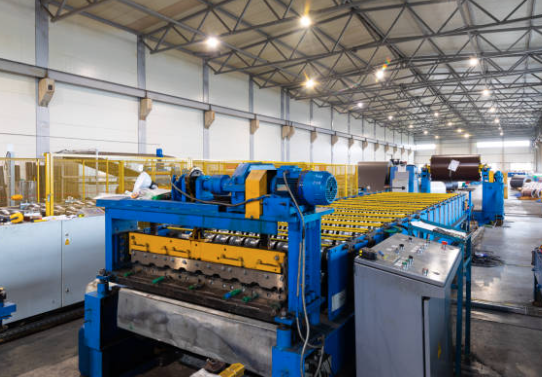When starting a roll forming business, selecting the right roll forming machine is crucial for ensuring your operations run smoothly and profitably. With various types of roll forming machines available, understanding their capabilities and how they align with your target market is essential. Here’s a comprehensive guide to help you choose the best roll forming machine for your startup.
Types of Roll Forming Machines
- Standard Roll Forming Machines:
- Capabilities: These machines are designed for producing common profiles like Z and C purlins, hat channels, and wall panels. They typically come with adjustable tooling for flexibility in profile design.
- Best For: Startups focused on conventional construction materials and profiles, allowing for quick setup and production of widely used components.
- Precision Roll Forming Machines:
- Capabilities: Equipped with advanced technologies like servo motors and precision rollers, these machines offer high accuracy and tighter tolerances.
- Best For: Businesses targeting high-quality applications, such as automotive parts or precision framing systems where exact measurements are critical.
- Heavy-Duty Roll Forming Machines:
- Capabilities: Built to handle thicker materials, these machines are ideal for producing robust profiles and structural components. They typically feature a higher power output and enhanced durability.
- Best For: Startups entering industries that require strong, heavy-duty applications, such as industrial or commercial construction.
- Custom Roll Forming Machines:
- Capabilities: These machines can be tailored to produce unique profiles based on specific customer needs. They offer flexibility in design and can accommodate a variety of materials and thicknesses.
- Best For: Startups aiming to serve niche markets with custom requirements, such as specialty roofing or unique architectural designs.
- Mobile Roll Forming Machines:
- Capabilities: Portable machines that can be transported to job sites for on-demand production. They often have a compact design and can produce various profiles.
- Best For: Startups focusing on projects that require flexibility and rapid response times, such as remote construction sites or installations.
Key Considerations for Choosing a Roll Forming Machine
- Market Demand:
- Assess the demand for specific profiles in your target market. Research your competitors and identify gaps where your startup can offer unique or superior products.
- Material Types:
- Consider the types of materials you plan to use (steel, aluminum, etc.) and the thickness range required for your products. Ensure the machine can handle these specifications.
- Production Volume:
- Evaluate your expected production volume. High-demand profiles may require a more robust machine capable of faster production speeds and larger runs.
- Flexibility and Customization:
- Determine whether you need a machine that can quickly adapt to produce different profiles or if you’ll focus on a limited product range.
- Budget:
- Factor in the cost of the machine, including maintenance and tooling. Balance your initial investment with the potential return on investment based on your projected sales.
- Technical Support and Training:
- Ensure that the manufacturer provides adequate support and training for operating and maintaining the machine, which is vital for minimizing downtime and ensuring safety.
Conclusion
Choosing the right roll forming machine is a pivotal decision for your startup. By understanding the various types of machines and their capabilities, as well as considering your target market and production needs, you can make an informed choice that aligns with your business goals. Investing in the right equipment will set the foundation for efficient operations, quality production, and long-term success in the roll forming industry.




